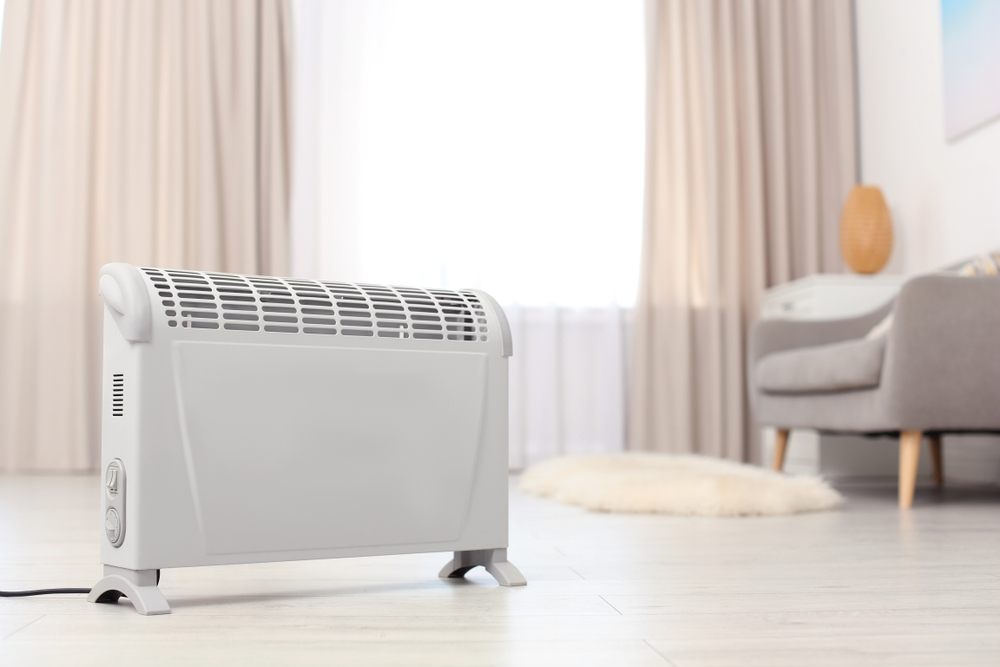Can an Electric Heater Be Considered 100% Efficient?

With the rising energy costs and the growing concern for the environment, homeowners are constantly searching for ways to make their homes more energy efficient. When it comes to heating, one option that often comes to mind is an electric heater. Electric heaters are praised for their convenience, ease of use, and relatively low installation costs. But are they truly efficient? Can an electric heater be considered 100% efficient?
Understanding Efficiency in Heating Systems
Before determining the efficiency of an electric heater, it is essential to clearly understand what efficiency means in the context of heating systems. Efficiency measures how effectively an appliance converts energy into useful heat. Higher efficiency results in less wasted energy and more cost-effective heating.
To calculate the efficiency of a heating system, we need to examine both the energy input (the electricity it consumes) and the energy output (the heat it provides). The formula for efficiency is as follows:
Efficiency = (Energy Output / Energy Input) x 100
In an ideal scenario, an electric heater would be able to convert all the electrical energy it consumes into heat energy, resulting in 100% efficiency. However, this ideal scenario is rarely achievable due to various factors that affect the efficiency of electric heaters.
Factors Affecting Efficiency
- Heat Losses: Electric heaters can experience heat losses through conduction, convection, and radiation. Conductive losses occur when heat is transferred through the material of the heater itself, while convective losses occur when the hot air generated by the heater escapes into the surroundings. Radiative losses, on the other hand, involve heat being emitted in the form of infrared radiation. These losses can significantly impact the efficiency of an electric heater.
- Insulation: The insulation of the room or space being heated can also affect the overall efficiency of an electric heater. Inadequate insulation allows heat to escape easily, leading to the heater working harder and consuming more electricity to maintain the desired temperature.
- Thermostat Control: The accuracy and reliability of the thermostat in an electric heater play a crucial role in its efficiency. A malfunctioning or imprecise thermostat can result in temperature fluctuations, leading to excessive energy consumption and lower efficiency.
- Energy Source: While electric heaters are considered efficient within the context of converting electricity into heat, the overall efficiency of electric heating depends on the energy source used to generate that electricity. If the electricity is produced from non-renewable or highly polluting sources, the environmental impact negates the efficiency of the electric heater itself.
Electric Heater Efficiency Rating
In the HVAC industry, the efficiency of electric heaters is commonly measured using the Annual Fuel Utilization Efficiency (AFUE) rating. This rating represents the ratio of actual heat output to the total energy input over a full year of use. AFUE is expressed as a percentage.
Unfortunately, electric heaters do not typically have an AFUE rating because electricity is not considered a fuel source. This rating is mainly used for natural gas, propane, and oil furnaces. However, since electric heaters convert almost all their energy directly into heat, their theoretical efficiency can be considered close to 100%.
Considering the factors mentioned earlier, it is fair to say that electric heaters can achieve a high level of efficiency when properly installed and used in well-insulated spaces with adequate thermostat control. While it may not be accurate to claim that electric heaters are 100% efficient in practice, they can come remarkably close to it.
Importance of Regular Maintenance
Regular maintenance is essential to maximize the efficiency of an electric heater. Neglected or poorly maintained electric heaters can lose their efficiency over time. Routine maintenance, such as cleaning the heating elements, checking the thermostat’s accuracy, and ensuring proper ventilation, can go a long way in preserving the heater’s efficiency.
Schedule a Service Today
If you’re considering installing or maintaining an electric heater in your home, trust the professionals at PlumbSmart. With our expertise in efficient heating and cooling systems, we can help ensure your electric heater performs optimally and saves you money on energy bills. Reach out to us for more information or to schedule an appointment with our experienced technicians.
